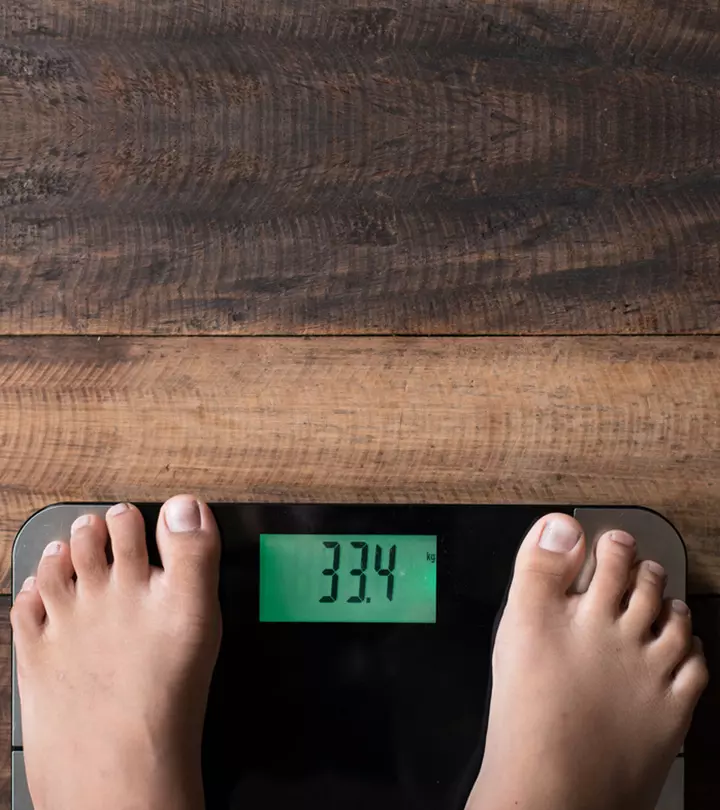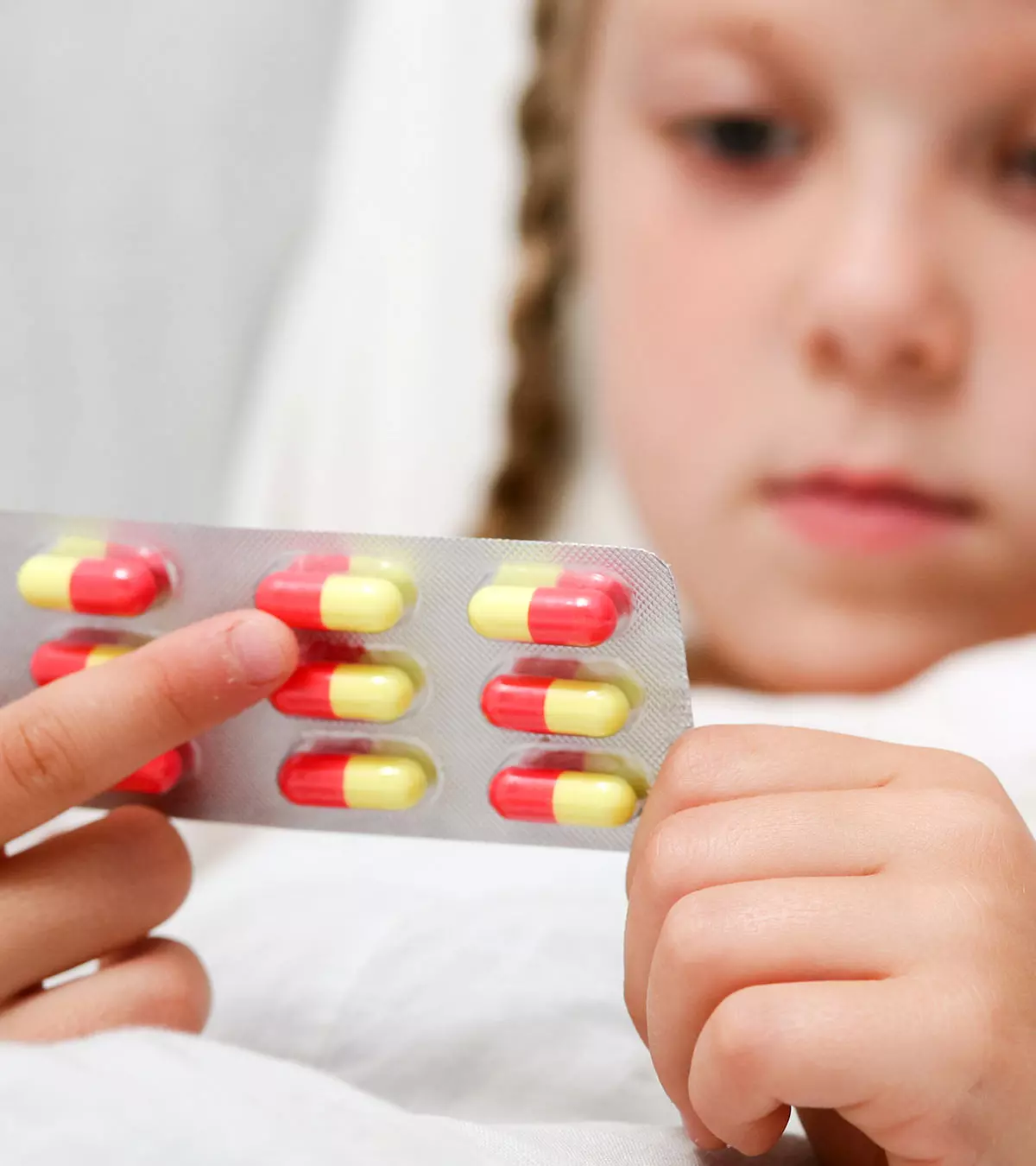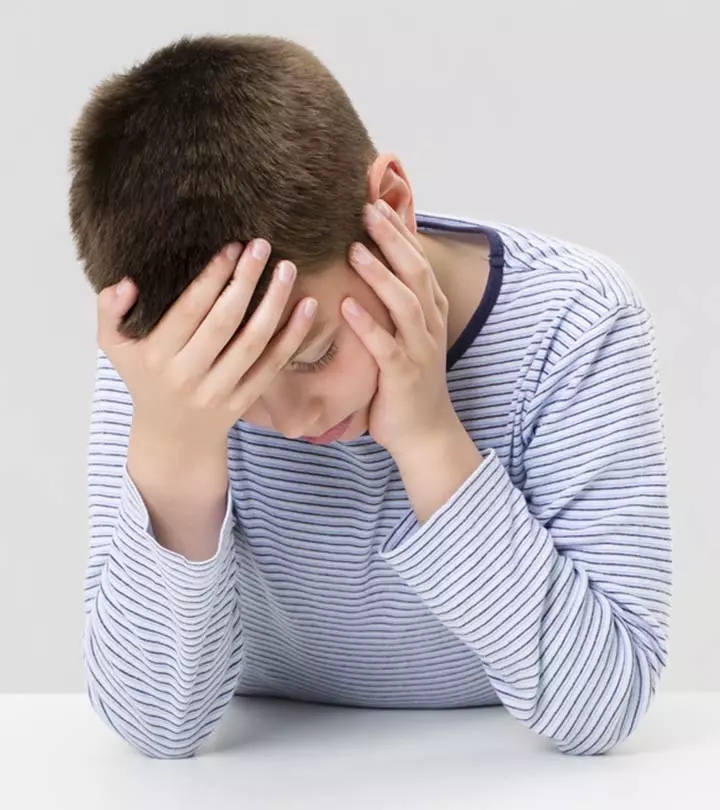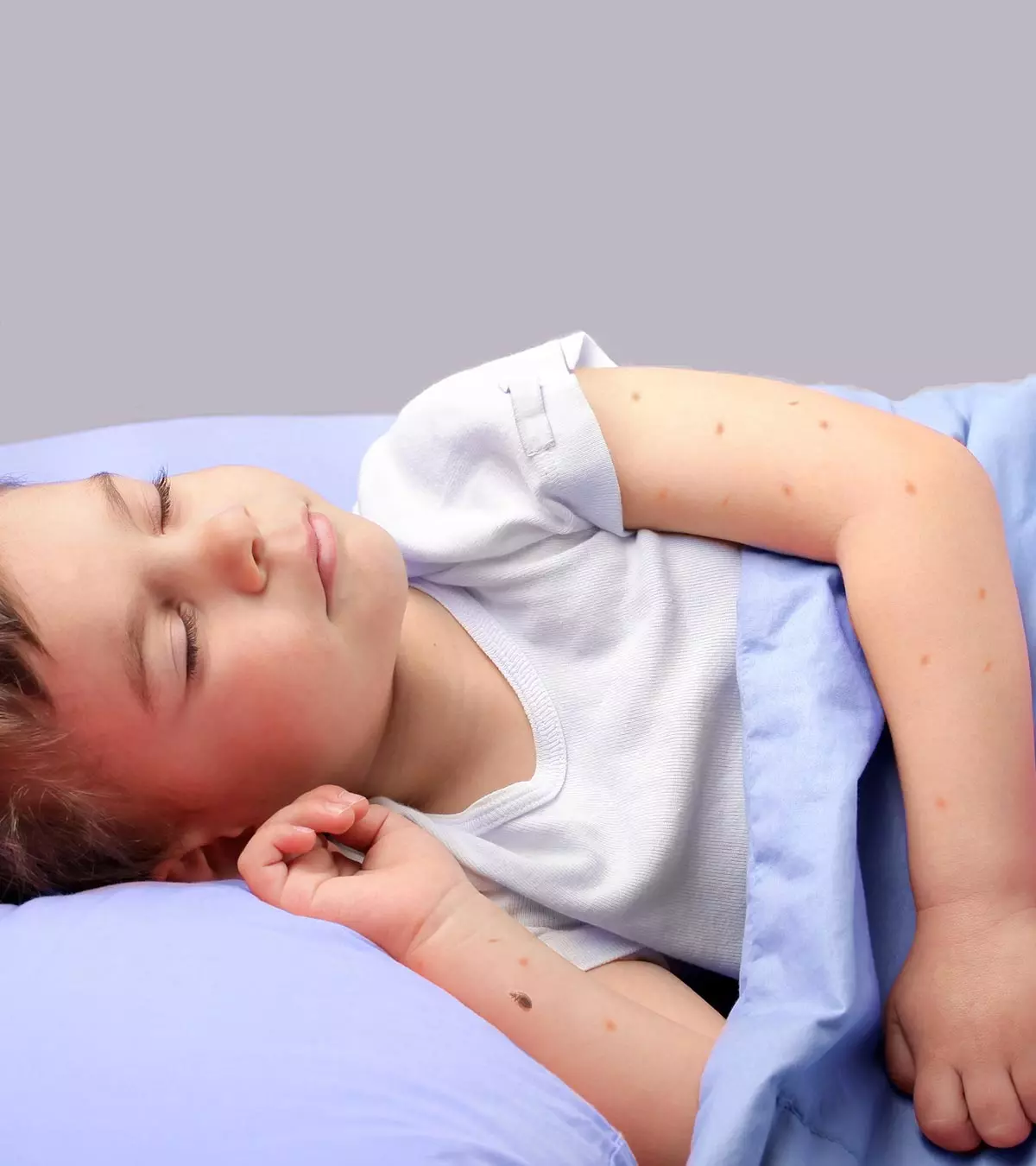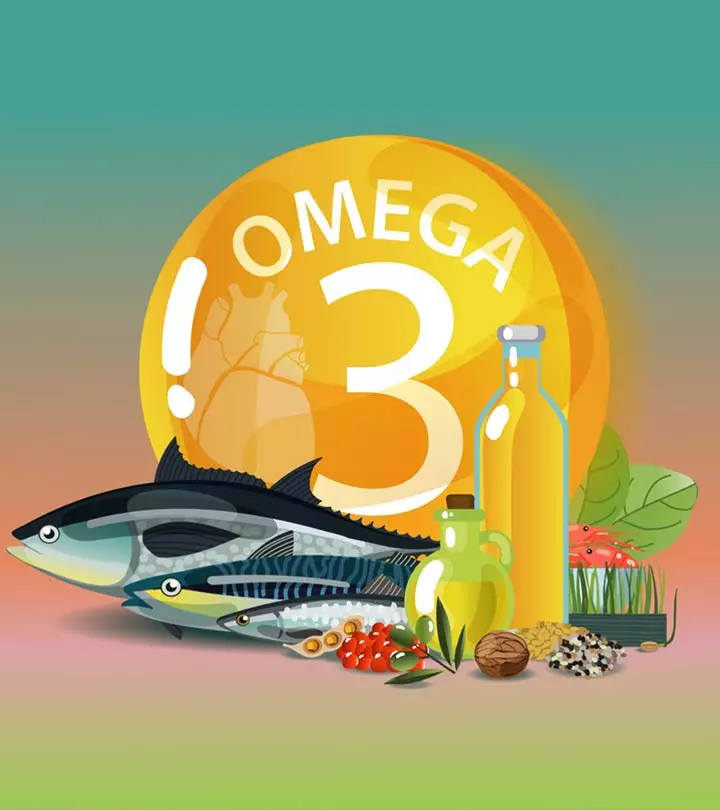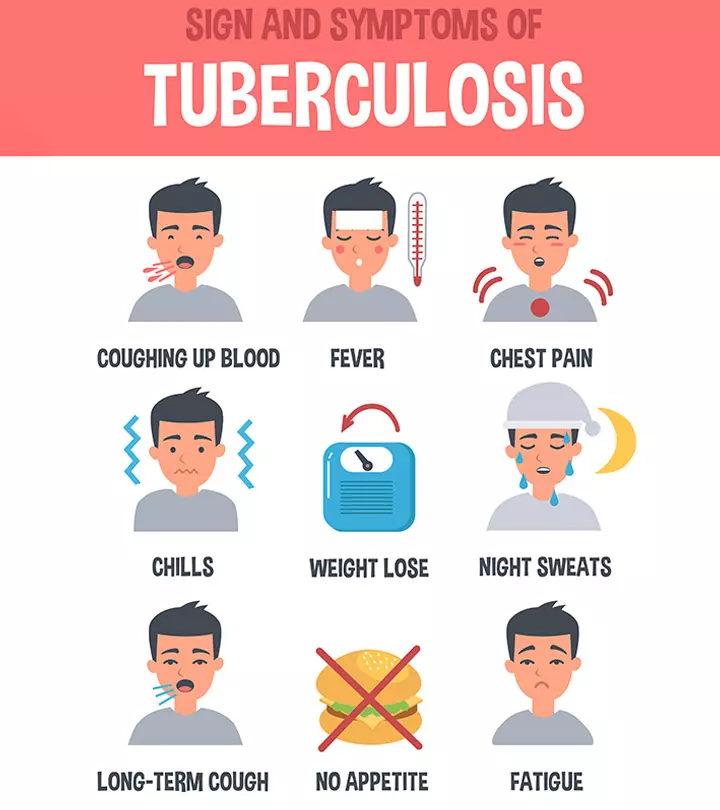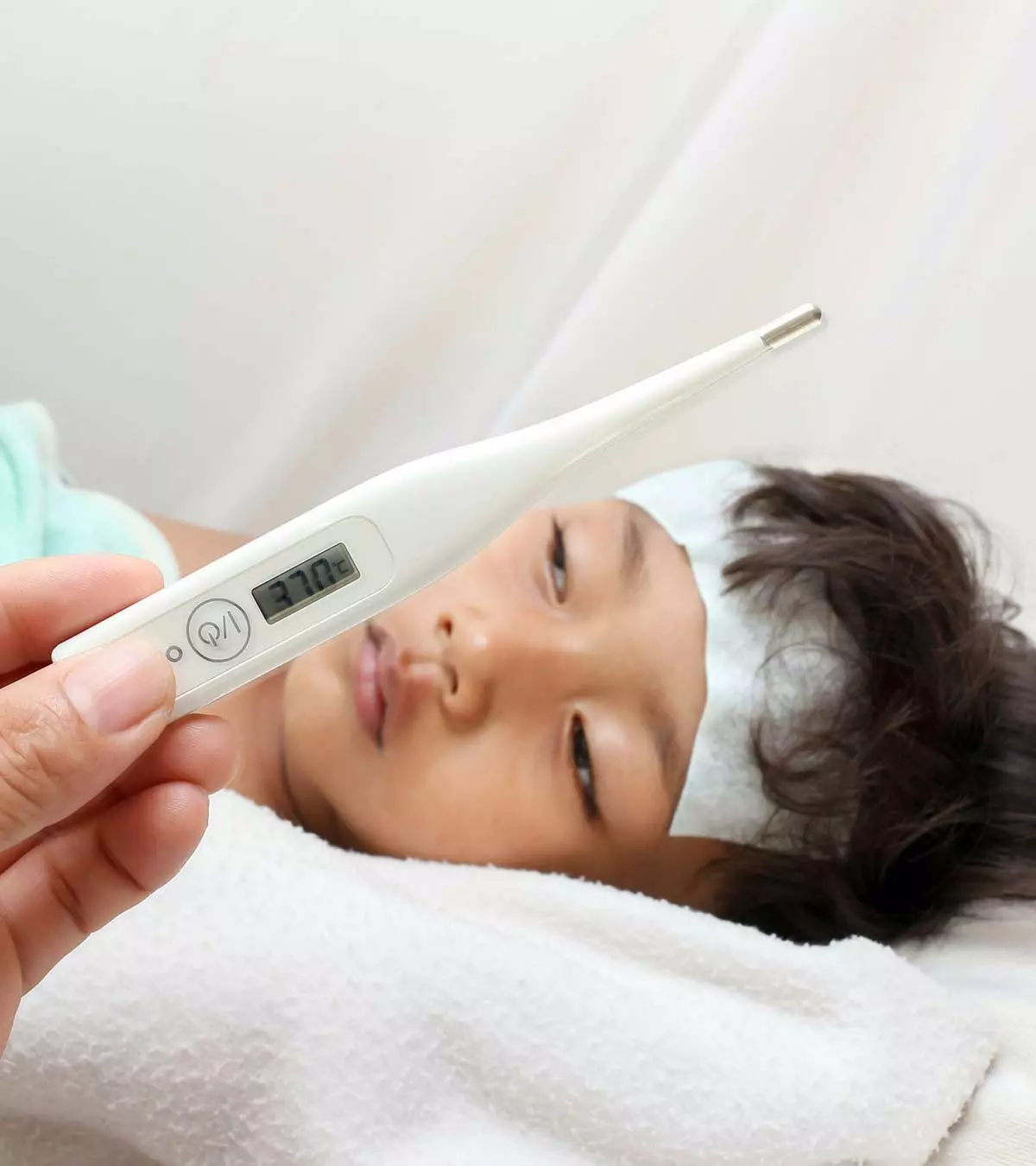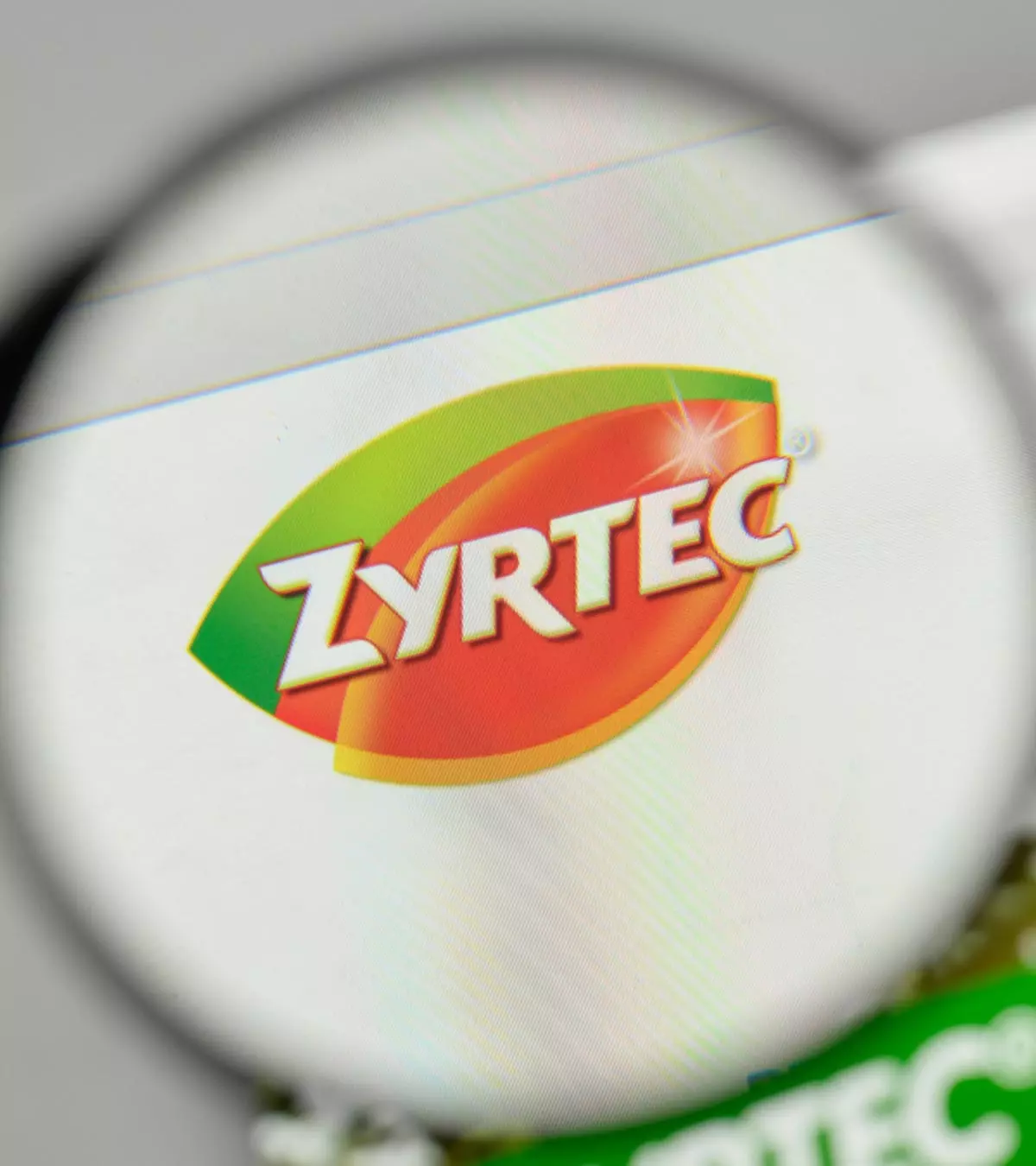
Image: Shutterstock
Zyrtec for kids is available for oral intake as tablets, dissolving tablets, chewable tablets, and syrups. It is also available as grape- or bubble-gum-flavored chewables or syrup for convenience. Effects of Zyrtec in children may begin within an hour after intake and last for about a day (12-24 hours).

Zyrtec, commonly known by the generic name cetirizine, is a non-drowsy antihistamineiA family of medications frequently used to treat allergy symptoms prescribed to reduce the effects of the chemical histamine in the body. HistamineiA chemical produced by the immune system in response to allergic reactions causes symptoms such as swelling, sneezing, runny nose, and watery and itchy eyes that are commonly seen in allergies and colds. It is also used for treating chronic urticaria (hives) in children.
Read this post to know more about the dose, safety, side effects, warnings, and other common concerns about Zyrtec for children.
Key Pointers
- Zyrtec can be given to children above two years to relieve the common symptoms of colds and allergies.
- Seek a pediatrician’s advice on the right dose for your child based on their weight and health.
- Seek medical help if your child develops side effects such as hives, breathing trouble, and swollen lips.
At What Age Can Cetirizine (Zyrtec) Be Given To A Child?

Zyrtec can be safely given to children aged two years and above. The FDA disapproved of its use for infants and children younger than two years. Zyrtec (Cetirizine) is often prescribed for children above six to relieve symptoms of allergies. Consult a pediatrician or follow a doctor’s prescription before giving Zyrtec to two- to six-year-old children (1).
 Experts say
Experts sayCetirizine (Zyrtec) Dosage For Children
You may seek a primary care provider or pediatrician’s advice for the appropriate doses of medication based on your child’s age, weight, and health status. The following table may help you understand the dosage of cetirizine (Zyrtec) for allergy in children (1).
| Child’s age (years) | 2-6 | 6-11 | 12+ |
|---|---|---|---|
| Liquid 5mg/ 5mL | 2.5mL | 5mL | 10mL |
| Liquid 5mg/ 1tsp (teaspoon) | ½tsp | 1tsp | 2tsp |
| Chewable 5mg tablets | – | 1 tablet | 2 tablets |
| Tablet 10mg | – | – | 1 tablet |
The dose mentioned above is for educational purposes only and is not a substitute for doctors’ prescriptions or advice.
Consult a pediatrician before giving medications to a child for allergic symptoms such as runny nose, hay fever, and hivesiInfection that causes raised itchy bumps on the skin, which may be caused by certain foods, drugs, or environmental factors . The doctor may prescribe Zyrtec based on your child’s age and the severity of symptoms.
Discussing the right way to use allergy medications like Zyrtec for kids, pediatric immunologist Matthew Bell says, “Kids tend to metabolize antihistamines like Zyrtec, Claritin, and Allegra faster than adults do. When we give them the prescribed dose on the packaging in the morning, they’re just miserable when they get home from school. So, with those drugs, it’s fine to give a second dose 12 hours later (i).”
 Did you know?
Did you know?Safe Use Of Cetirizine (Zyrtec) For Children

The safety and efficacy of Zyrtec are not guaranteed for children under two years of age. Take the following safety measures when giving Zyrtec to children (2):
- Do not give cetirizine, or any antihistamine for kids, to a child with previously known hypersensitivity or allergic reactions. The product should also be avoided if the child has a history of allergies to antihistamines containing hydroxyzine (9).
- Children with renal (kidney) impairment and liver impairment may require dose adjustment according to their condition. Zyrtec is not recommended for children with poor renal function.
- Give the medications as per the doctor’s prescription to avoid overdosing.
- Use syringes or droppers to measure the dose of liquid (syrup or solutions) medications.
- You may use measuring spoons to measure the medication. Regular spoons may not be reliable.
- Store the medication at room temperature. Do not store in hot and moisturized places.
- Do not freeze the liquid medications.
- Seek the pediatrician’s advice to know how often, how, and how much to give.
- Check expiration dates while purchasing medications.
- Read the manufacturer’s information to know about drug interactions, side effects, and warnings.
- Do not give medications to siblings following another person’s prescription.
- Give medications until the prescribed duration. Seek medical advice if the symptoms do not improve.
- Keep Zyrtec out of the child’s reach.
Over-the-counter treatment is not recommended for a long duration. It is recommended to seek pediatric consultation to identify the cause of different allergies in children, such as seasonal allergies and indoor and outdoor allergies, and determine the best treatment options.
 Caution
CautionCetirizine (Zyrtec) Side Effects And Warnings In Children
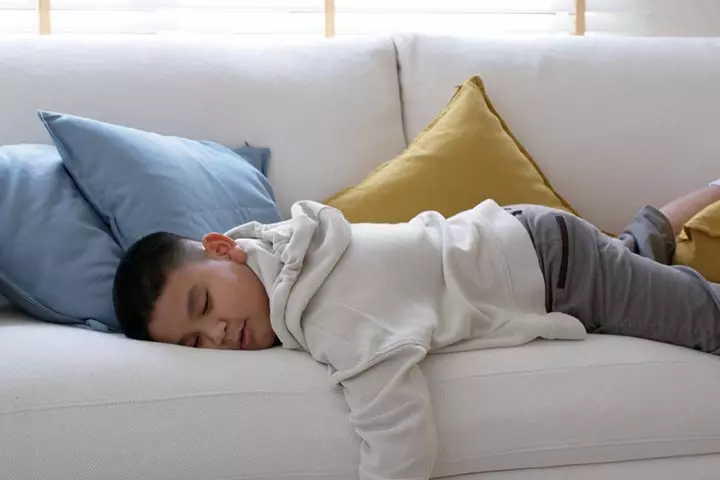
Some children may develop side effects such as vomiting and stomach pain after taking Zyrtec (2). Seek emergency medical help if your child shows any of the following signs of an allergic reaction after taking Zyrtec (3).
- Hives
- Difficulty breathing
- Swelling of tongue, lips, throat, or face
Stop giving Zyrtec or cetirizine to children and contact the doctor if your child develops any of the following side effects (3).
- Uneven, pounding, or fast heartbeat
- Hyperactivity
- Severe restlessness
- Weakness
- Sleep issues (insomniaiA sleep disorder that makes it difficult to fall asleep, stay asleep, or get a sound sleep )
- Uncontrolled shaking (tremors)
- Oliguria or anuria (reduced or no urination)
- Confusion
- Vision problems
Other common side effects of cetirizine may include (3)
- Tiredness
- Drowsiness or lightheadednessiWhen you feel like you're about to pass out
- Sweating and feeling hot
- Tingling or numbness
- Burning pain
- Reduced sense of taste
- Stomach upset
- NauseaiWhen you feel ill to your stomach, as if you're about to vomit
- ConstipationiA condition in which a person passes stools less than three times a week and may have difficulty in completely expelling waste from the rectum
- Headache
- Sore throat
- Dry mouth
 Research finds
Research findsSome children may experience other signs and symptoms after taking Zyrtec or cetirizine. Seek medical advice if your child has any unusual signs and symptoms after taking the medication. You can also report the side effects to the FDA (in the US) or an equivalent organization in your country.
Frequently Asked Questions
1. What happens if my child misses a dose?
You may give the medication as soon as possible if the time for the next dose is hours away. However, skip the missed dose if it is almost time to give the next dose. Follow the prescription timings and never give two doses at the same time (4).
2. Can my child take Zyrtec and cough syrup?
You may contact the pediatrician before giving a combination of cough syrup and Zyrtec to the child. Some cough syrups may contain cetirizine or other antihistamines. So, seeking a prescription can avoid overdose and interactions. Cough syrups containing dextromethorphaniDrug that temporarily relieves cough brought on by the common cold, flu, or other diseases but does not treat its cause (DM) may increase the chance of developing side effects if taken with cetirizine.
3. Is it okay to take Zyrtec every day?
Zyrtec may be advised regularly during seasons when allergies are common. However, do not give Zyrtec to your child for a prolonged period without the doctor’s consent.
4. Which is better, children’s Claritin or Zyrtec?
Zyrtec and Claritin are both second-generation antihistamines. However, Zyrtec may cause increased drowsiness compared to Claritin (5). Your child’s doctor may prescribe either of these medicines based on the child’s symptoms and how well they may tolerate side effects.
5. Can a child take Benadryl and Zyrtec together?
No, combining Benadryl (diphenhydramine) and Zyrtec may lead to increased side effects. Also, Benadryl should be consumed every six hours, while Zyrtec dosage is required only once a day (5). The US Food and Drug Administration (US FDA) advises parents to be cautious when using over-the-counter cold and cough medicines with multiple ingredients, as they can increase the risk of accidental overdose (11). Therefore, it’s best to consult a doctor before giving Zyrtec along with other medications to children.
6. What are some alternatives to Zyrtec for children?
Allegra and Claritin are common alternatives to Zyrtec (5). However, it’s important to use these medications for children only under medical supervision, as they may cause side effects. Alternatively, you could consider trying home care measures such as keeping your child well-hydrated, using a cool mist humidifier, and applying saline nasal sprays to help naturally relieve allergy symptoms (11).
Zyrtec for kids is an antihistamine medication, most commonly prescribed for allergies and colds. However, you must give Zyrtec to your child only when prescribed by a medical professional who will guide you with the appropriate dosage and duration for effective treatment. Some children could have side effects of this medication, such as gastric issues, drowsiness, breathing difficulties, and swelling in the mouth. Ask your child to avoid activities requiring alertness after taking this medication. If you notice any adverse reactions or suspect an overdose, seek immediate medical attention.
Infographic: Safe Use Of Zyrtec For Children
Cetirizine (Zyrtec) is available as chewable tablets or syrup for children to treat allergic reactions. It is essential to follow the correct dosage and observe precautions to prevent any adverse side effects. The infographic below provides safety tips one should know when giving Zyrtec to children.
Some thing wrong with infographic shortcode. please verify shortcode syntaxLearn about the risks and benefits of administering Zyrtec to your child and the correct dosage that they should be given in, through this informative video.
Personal Experience: Source
MomJunction articles include first-hand experiences to provide you with better insights through real-life narratives. Here are the sources of personal accounts referenced in this article.
i. Kids and Allergy Season: A Q&A with Matthew Bell, M.D.;https://www.archildrens.org/blog/kids-and-allergy-season
References
1. Cetirizine (Zyrtec) Dose Table; St. Louis Children’s Hospital
2. Zyrtec; RXList
3. Cetirizine (Oral/Injection); C.S. Mott Children’s Hospital
4. Cetirizine; National Health Service
5. When mosquitoes bite, take antihistamines for relief; University of Washington
6. ZYRTEC® Children’s Allergy Relief Syrup; Zyrtec
7. Zyrtec Dosage Charts for Infants and Children; Drugs.com
8. Don’t overmedicate your child during cold, allergy season; American Academy of Pediatrics
9. Children’s Zyrtec Allergy (Label); US Food and Drug Administration
10. Zyrtec® (cetirizine hydrochloride) Tablets and Syrup For Oral Use; US Food and Drug Administration
11. Use Caution When Giving Cough and Cold Products to Kids; US Food and Drug Administration
Community Experiences
Join the conversation and become a part of our nurturing community! Share your stories, experiences, and insights to connect with fellow parents.
Read full bio of Maria Carmela Villania-Mamauag
Read full bio of Dr Bisny T. Joseph
Read full bio of Dr. Ritika Shah
Read full bio of Dr. Joyani Das





